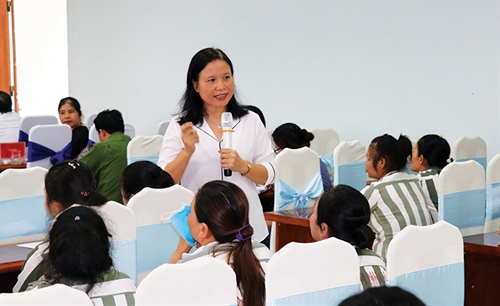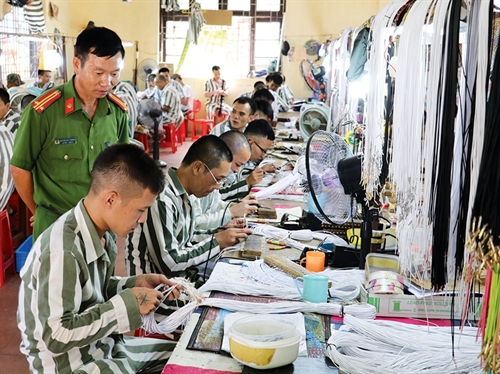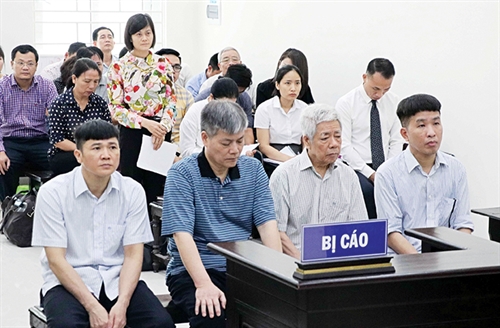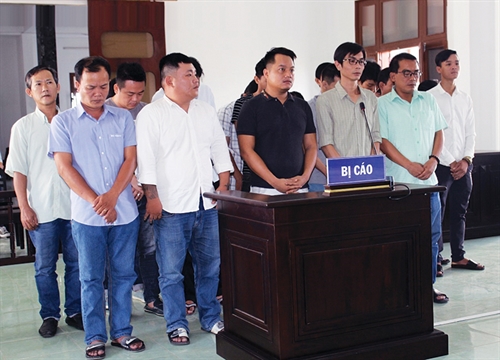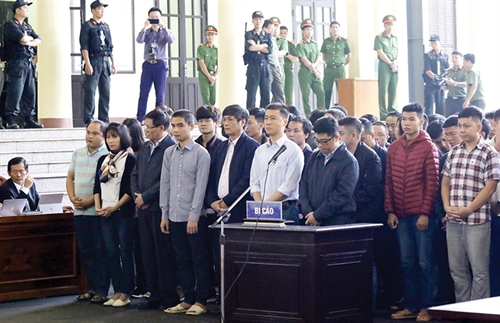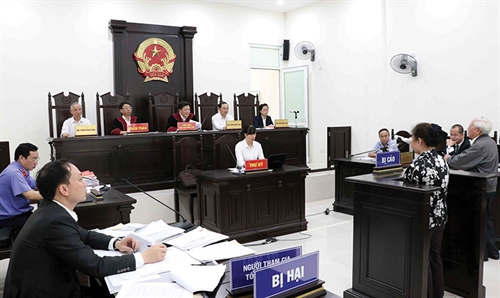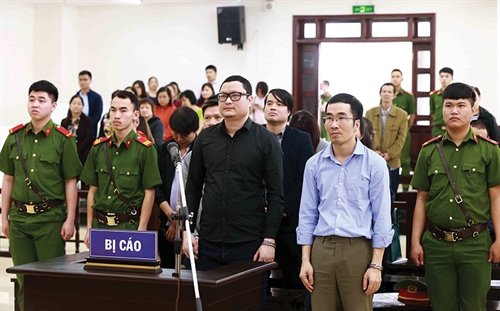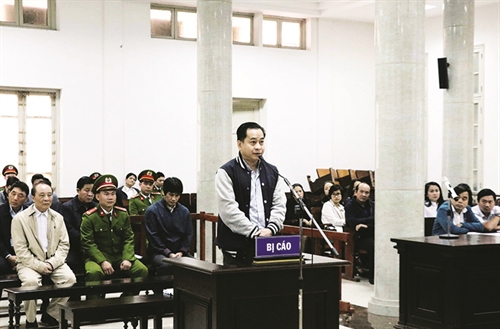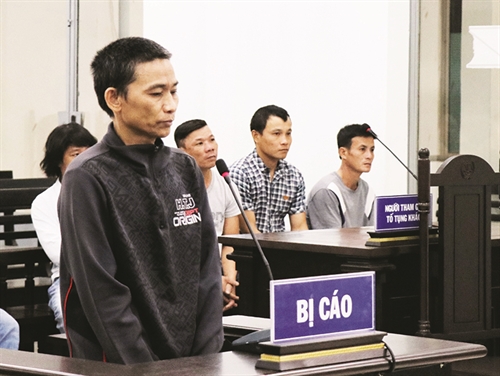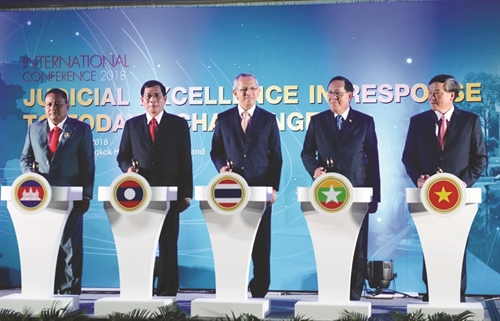Le Xuan Luc, LL. M.
Hanoi Procuratorate University
The 1984 United Nations Convention against Torture and other Cruel, Inhuman or Degrading Treatment or Punishment (UNCAT), one of the nine fundamental conventions on human rights, came into force on June 26, 1987, after being ratified by 20 member states[1]. Vietnam acceded to the UNCAT on November 7, 2013, and ratified it a year later. As a member state to the UNCAT, Vietnam has spared no efforts to build its legal system, particularly criminal justice laws including the Penal Code, Criminal Procedure Code, Law on Custody and Temporary Detention, Law on Execution of Criminal Judgments, Law on Organization of Criminal Investigation, etc., in conformity with the UNCAT.
Definition of torture
Torture is not only referred to in the UNCAT but also in numerous international legal instruments as the protection from torture and inhuman treatment is one of the basic human rights provided in the 1948 Universal Declaration of Human Rights (UDHR) and the 1966 International Covenant on Civil and Political Rights (ICCPR). However, the definition of torture in the UNCAT seems to be the clearest and most comprehensive one: “For the purposes of this Convention, the term “torture” means any act by which severe pain or suffering, whether physical or mental, is intentionally inflicted on a person for such purposes as obtaining from him or a third person information or a confession, punishing him for an act he or a third person has committed or is suspected of having committed, or intimidating or coercing him or a third person, or for any reason based on discrimination of any kind, when such pain or suffering is inflicted by or at the instigation of or with the consent or acquiescence of a public official or other person acting in an official capacity. It does not include pain or suffering arising only from, inherent in or incidental to lawful sanctions.”
After the Vietnamese National Assembly adopted Resolution 83/2014/QH13 ratifying the UNCAT, the Prime Minister issued on March 17, 2015 Decision 364/QD-TTg approving the plan on organization of the implementation of the Convention.
Like other member states to the UNCAT, Vietnam has the obligation to build and improve its laws toward criminalizing torturing acts in line with the UNCAT.
At present, Vietnam’s criminal justice laws are basically compliant with the UNCAT.
The 2015 Penal Code (revised in 2017) (Penal Code) does not define torture and prescribes no torture-related crimes but criminalizes all acts of torturing nature as in three crimes of using corporal punishment, coercing testimony, and buying off or forcing other persons to give testimonies or provide documents[2]. Persons who commit these acts may also be examined for penal liability for murder, causing human death while on official duty, forcing suicide, threatening to murder, persecuting or humiliating other persons, etc. Compared to its predecessors, the Penal Code expands the categories of offenders responsible and adds penalties for torture-related acts in conformity with the definition of torture provided in the UNCAT as well as with the practical conditions of Vietnam, particularly in the three said crimes.
Specifically, for the crime of illegal arresting, holding in custody or detaining persons, the Penal Code adds an aggravating circumstance of “torturing, treating or punishing cruelly, or injuring the dignity of, the person who is arrested, held in custody or detained”, which may fetch offenders a prison sentence of 5-12 years[3]. As regards the crime of using corporal punishment, it establishes a new penal liability-subject act of “using corporal punishment against, cruelly treating or humiliating, another person in any forms”, which may fetch offenders a prison sentence of 7-12 years if this act leads to the suicide of the punished person or a prison sentence of 12-20 years or life imprisonment if it causes the death of the punished person[4]. For the crime of coercion of testimony, it also adds an aggravating circumstance of “using corporal punishment to, cruelly treating or humiliating a testifying or questioned person”, which may fetch offenders a prison sentence of 2-7 years or 12-20 years or life imprisonment if causing the death of the coerced person, leading to the wrongful conviction of an innocent person or to the omission of a very serious or particularly serious crime[5].
The 2015 Criminal Procedure Code has established the basic principles of criminal proceedings that are conformable with the UNCAT, such as “torture, extortion of statements, corporal punishment or any kind of treatment infringing upon human body, life or health is strictly prohibited”[6], “protection of life, health, honor, dignity and property of individuals”[7], “(the right of arrestees, persons held in custody, the accused or defendants) to present their statements and opinions without having to incriminate themselves or being forced to plead guilty” and “to ask other persons to defend them”[8]. The right to defense counsel of criminally charged persons aims to prevent them from being tortured or inhumanly treated when arrested. It is seen as a positive development of this Code as it requires the presence of a defense counsel for a criminally charged person right from the stage of investigation and audio or audio-visual recording of his interrogation[9].
The 2019 Law on Execution of Criminal Judgments prohibits torture and other cruel, inhuman or degrading treatment or punishment in the execution of criminal judgments or judicial measures, discrimination against or infringement upon lawful rights and interests of individuals or commercial legal persons.
The 2015 Law on Custody and Temporary Detention bans torture, coercion and use of corporal punishment against, or any kind of treatment infringing upon lawful rights and interests of, persons held in custody or detained[10].
The 2015 Law on Organization of Criminal Investigation Bodies prohibits coercion of testimony, use of corporal punishment and any kind of torture or cruel, inhuman or degrading treatment or punishment against, or any acts infringing upon lawful rights and interests of, organizations and individuals[11].
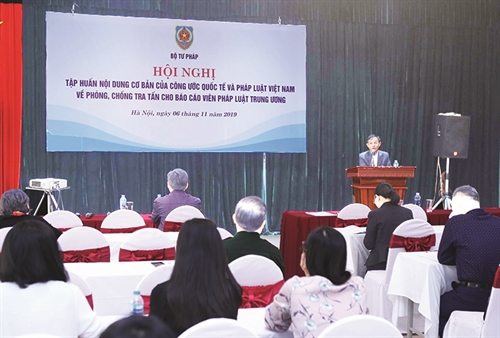 |
| A conference on the United Nations Convention against Torture held by the Ministry of Justice in Hanoi on November 6 __Photo: Danh Lam/VNA |
Improving Vietnam’s criminal legal system to better conform to UNCAT
In addition to criminalizing acts of coercion of testimony and use of corporal punishment, the 2015 Penal Code should create a new crime of torture and provide clear definitions of torture and cruel, inhuman or degrading treatment or punishment against persons conformable with those in the UNCAT. This aims to broaden the array of torture victims, which is now limited to persons subject to deterrent measures, execution of criminal judgments or judicial measures, and to conform to the definition of torture in the UNCAT, especially when torture aims to inflict pain or suffering not only on directly tortured person but also on a third person based on discrimination.
Once the torture-related crime is added, the crime of using corporal punishment can be abolished since any act showing signs of using corporal punishment can be regarded as torture. The scope of torturing acts should also be extended from judicial activities as at present to other official-duty activities.
Besides, penalties against the crime of torture should be commensurate with the danger and physical and mental seriousness of the consequences of torturing acts.
The Criminal Procedure Code should also be amended to better protect the right to silence of arrestees, persons held in custody, detainees, the accused and defendants and their right to defense counsel right from the initial stage of criminal proceedings in order to avoid coercion of testimony and use of corporal punishment against them. For example, it can provide that interrogation minutes made in the absence of defense counsels are not legally valid. In other words, the presence of defense counsels right from the initial stage of criminal proceedings is compulsory so as to avoid torture in criminal proceedings.
It should also provide that statements and testimonies taken through torture, corporal punishment or coercion of any kind may not be used as accusing evidence in any stage of criminal proceedings. Regarding the audio and audio-visual recording of the interrogation of the accused, the Ministry of Public Security, Ministry of National Defense, Supreme People’s Procuracy and Supreme People’s Court have jointly issued Joint Circular 03 guiding procedures for making, use and archive of audio and audio-visual recordings made during investigation, prosecution and trial, contributing to preventing the coercion and use of corporal punishment against criminally charged persons during interrogation and protecting them from false accusation or calumny[12].
The 2017 Law on State Compensation Liability should be revised to conform with Article 14 of the UNCAT, which states: “each State Party shall ensure in its legal system that the victim of an act of torture obtains redress and has an enforceable right to fair and adequate compensation, including the means for as full rehabilitation as possible. In the event of the death of the victim as a result of an act of torture, his defendants shall be entitled to compensation.” Accordingly, the law should ensure adequate state compensation in the spirit of the UNCAT, which must cover also treatment of physical injuries and psychological trauma of torture victims which aim to ensure their full rehabilitation, and to simplify procedures to assess victims’ physical and mental sufferings and promptly settle their claims for state compensation.
Finally, Vietnam should enact soon a separate anti-torture law with a view to better protecting human rights and citizens’ rights in criminal proceedings in the country.-
